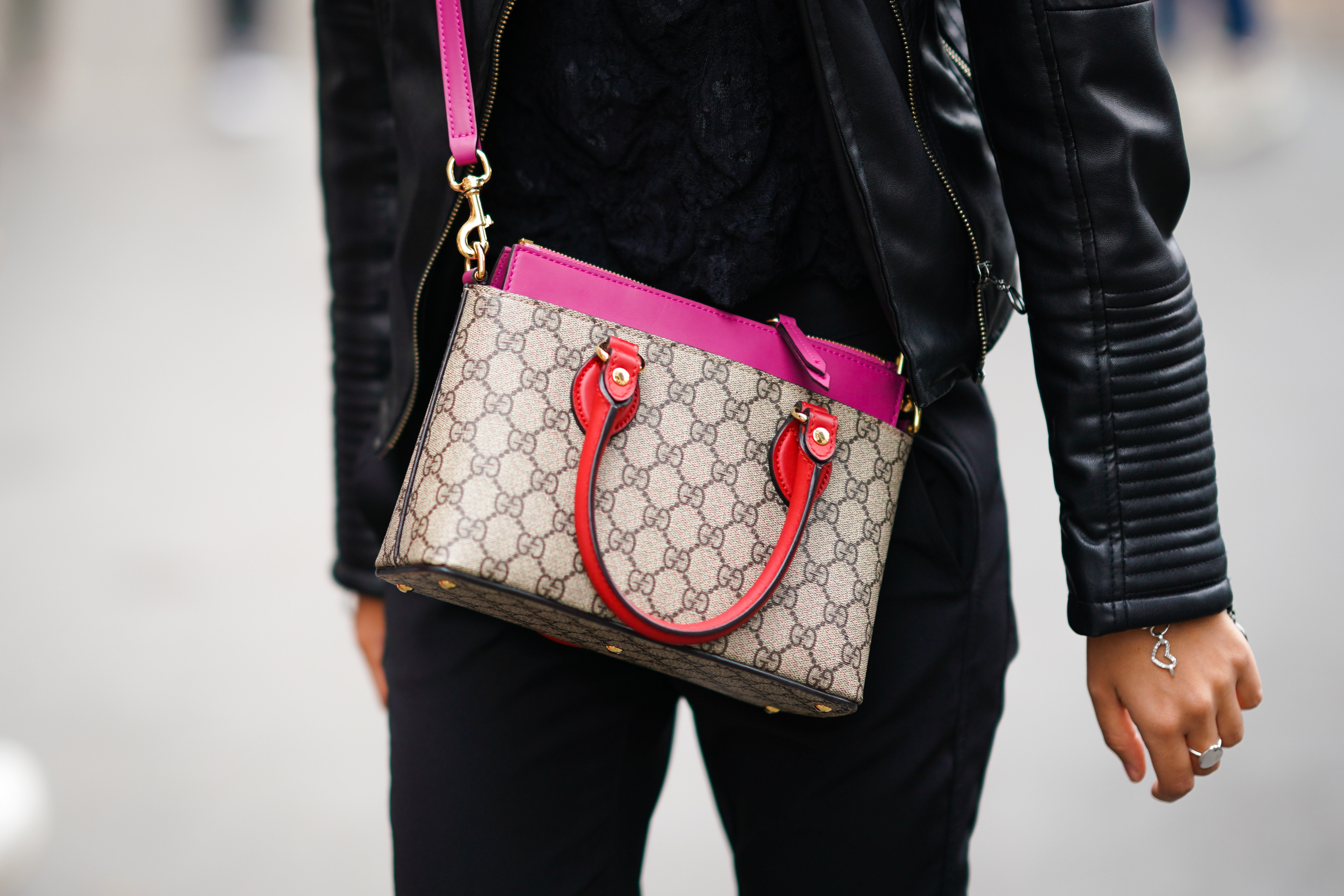
Gucci x Hip Hop
Name-dropped in more lyrics than any other brand, hip hop is obsessed with Gucci. But, how has the Italian house, which was originally a purveyor of equestrian goods, become such an influencer of pop culture?
Have you ever noticed all the luxury fashion houses mentioned in hip-hop songs? It does not take an expert ear. A$AP Rocky name-drops over 20 different brands in “Fashion Killa,” Jay-Z professes his loyalty to one designer in “Tom Ford,” and Migos boasts that everything down to their “drawers” is designed by Versace in the aptly titled song - to name just a few examples. The fashion industry has played an active role in hip-hop culture, despite their relationship being as conflictual as it is prolific.
In the documentary Fresh Dressed (2015), which chronicles the emergence of urban fashion on the catwalk, director Sacha Jenkins illustrates how, in the early hip-hop scene, clothes were a way of transcending the poverty that surrounded most of the artists in the genre. “If you go home and you got roaches and ten people living in an apartment, the only way you can feel some kind of status is [through] what you have on your body,” explains record executive Damon Dash. Although there are labels specifically designed to meet the demands of the hip-hop scene, rappers have still widely preferred European luxury brands, which symbolize achievement of the gold standard. “It’s like being a conqueror,” says Jenkins, “you’re buying into the notion of superiority.”
Photo by Christian Vierig/Getty Images
“What’s Gucci?”
Among the luxury fashion houses, Gucci is the most name-dropped in all of hip-hop history. From Lil Pump’s song “Gucci Gang,” which mentions the house a total of 53 times, to rapper Radric Davis, who has adopted Gucci Mane as his stage name, the Italian luxury brand has been referenced thousands of times in hip-hop music.
According to fashion writer Calum Gordon, hip hop is partly obsessed with the Italian brand because it is linguistically simple. In comparison to other houses, like Versace and Saint Laurent, Gucci has only two syllables. Aside from its ease to rap, Gucci is opulent and expensive, contrasting most rappers’ humble beginnings and evidencing their wealth and success.
Photo by Christian Vierig/Getty Images
Photo by Christian Vierig/Getty Images
It all started with Dapper Dan
Hip hop’s steady affair with Gucci can be traced back to the '80s. It all started in 1982, when Dapper Dan, born Daniel Day, opened his first boutique in Harlem. There, with his flamboyant style, the now-iconic fashion designer and haberdasher paved the way for hip hop’s collaboration with luxury fashion. Incorporating bootlegged luxury logos into his own designs, Dan joined high fashion with streetwear. “Anything a designer didn’t have, I would embellish it for them. I blackenized it. I made it so it’d look good on us. I took it where they would never take it…I never realized the impact it was making, I just wanted to serve my community,” explains Dan in Fresh Dressed. His clientele included Mike Tyson, Nelly, LL Cool J, Jay-Z, and Salt-N-Pepa. Most notably, Dan made matching ‘GG’ monogram track jackets for Eric B. and Rakim’s Paid In Full album cover, which is considered to be one of the most significant in the genre’s history.
Along with other luxury labels, Gucci put an end to Dan’s fashion renaissance in 1992, when he had to shut down his boutique due to their lawsuits.
But, that was not the end of Dapper Dan x Gucci. In its Resort 2018 collection, Gucci released a design starkly reminiscent of Dan’s. The controversial piece, a fur bomber jacket with balloon sleeves in Gucci’s monogram fabric, looks remarkably like a design Dan made for Olympic gold medalist Diane Dixon in 1989. The only difference? Hers was embellished with the Louis Vuitton logo. After Dixon posted a side-by-side comparison to her Instagram, declaring, “‘Bish’ stole my look! Give credit to @dapperdanharlem He did it FIRST in 1989! #gucci #GucciRipOff Now they get it! Long time overdue!”, Alessandro Michele promptly credited Dan. Michele, Gucci’s creative director, described the design as “an homage to the work of the renowned Harlem tailor” and a “celebration of the culture of that era in Harlem.”
Since then, Gucci has attempted to make amends, creating a collection and opening a new Harlem boutique – the first luxury fashion store in the neighborhood – in collaboration with Dapper Dan.
Photo by Christian Vierig/Getty Images
The blackface sweater
In 2019, Gucci made headlines yet again. As part of his Fall/Winter 2018 collection, Michele designed a black sweater that featured a roll-neck collar with a large, red outline around a mouth cut-out. Its resemblance to blackface, which was done in minstrel shows to mock black culture and portray black people as inferior, was obvious to seemingly everyone except Gucci. Following colossal backlash, the brand removed the balaclava sweater from its website and issued an apology, saying, “We are fully committed to increasing diversity throughout our organization and turning this incident into a powerful learning moment.”
Following the incident, many artists – led by T.I., Soulja Boy, and Waka Flocka Flame – started a powerful call to action against Gucci, claiming that the luxury label has long profited off of hip-hop culture but does not give back.
Photo by Christian Vierig/Getty Images
